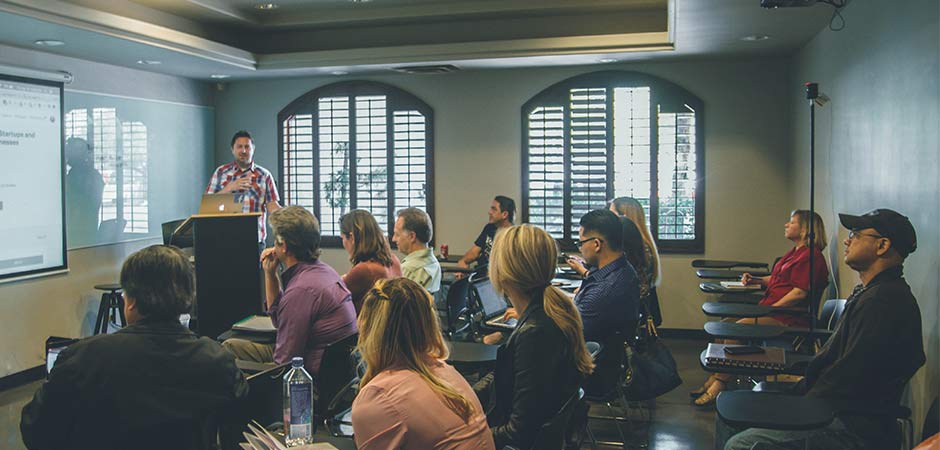After posting an article on LinkedIn, a reader commented to ask me about a line in the article that reads: “If the only reason you ask your client questions is to identify a problem so you can sell your solution, there is strong evidence that your approach is too transactional to find you One-Up.”
The reader suggests that "asking great questions is the heart of what great consultants do." It is certain that great consultants ask great questions. While I agree with the statement, questioning isn't the heart of what a consultant does. The heart of what they do is to help their clients understand why they are struggling to produce important results. They often use questions to create that outcome and provide their clients with the advice and recommendations that allow them to improve their business.
My argument is more narrowly focused and limited to the idea that: If the only reason you are asking a client a question is simply to have your contact confess they have a problem your solution can address, your approach may not be as consultative as you believe.
The Nature of Consultative Sales
The reader's question makes the case. There is a difference between a consultant and a consultative salesperson, and it is a mistake to believe they are somehow the same. The consultant shows up with a business card, a legal pad, a pen, and the knowledge and experience to help their client improve their results. The consultative salesperson shows up with a slide deck, a laptop, a business card, a pen, and a legal pad.
The difference between the two is that consultant sells their advice and their recommendations. The consultative salesperson has a "solution" to sell. The fact that the salesperson has a product or service to sell seems to be front and center, and if the salesperson does consult, it's mostly in service of positioning their "solution."
If the only reason you ask your clients questions is to identify a problem solved by your solution, it is unlikely you are truly consultative, or One-Up.

The Arc of the Evolution of B2B Sales
At some point, the evidence started to pile up that the way we sell started to decay, no longer creating the same value as it did in the past. I remember where I was sitting the first time a client told me to put my laptop back in my bag, telling me that he was going to ask me questions. How was I supposed to answer the questions without referring to the slide deck that held the answers to his questions?
I also remember wondering why there were fourteen stakeholders in a first discovery call, later showing up to a meeting with twenty-two people in the room. The second group asked as many or more questions of each other than the number they asked me. They weren't able to make sense of the decision they were exploring.

The arc of the evolution of B2B sales is towards greater value creation and away from the more transactional approaches, including the approaches we might have once described as consultative. Now, greater value creation is closer to something you might expect from a consultant, as some prospective clients need as much understanding of why they struggle to generate the results that were once easier to produce. At the same time, they aren't exactly sure how best to make a decision about how they should change and how to know what is right for their company and their circumstances.
Consultative Sales
The nature of consultative sales is one built on counsel, advice, and recommendations. Much of the art of consultation is in good questions, but many of them are designed to do more than identify a problem and provide a solution. Some questions are designed to identify the root cause of the problem, while others are designed to elicit the client's assumptions, and still others provide a new set of assumptions to replace those that are outdated or no longer useful. The consultant generally knows what the client's problem is, and being a consultative salesperson requires knowing what problems your clients are experiencing--or soon will be.
The now perfectly commoditized discovery call is a well-worn pattern that feels transactional, as it begins with a question about a problem as a way to pitch the solution. The question is designed to improve the salesperson's results, not to help the client understand what's changed and how they should respond. The worst part of this approach is that it limits the advice and recommendations to "buy our solution from us because we have the best solution."

It would be odd to see a consultant open their laptop and walk their client through eight slides designed to answer "why us" as a way to gain credibility and relevance. Their focus is on the client. It would also be rare to find a consultant racing towards a problem they can solve without spending enough time and asking enough questions to make sure they understand the real problem they will help solve.
The nature of consultative sales is providing advice and recommendations about what your client must do to improve their results, with a broader scope than what one might cover if their only goal was to sell their solution. In a time that finds decision-makers and their companies challenged by an environment of constant, accelerating, disruptive change, a consultative approach may be the only way to help decision-makers and their teams to take action in the face of uncertainty.








.jpg?width=768&height=994&name=salescall-planner-ebook-v3-1-cover%20(1).jpg)


